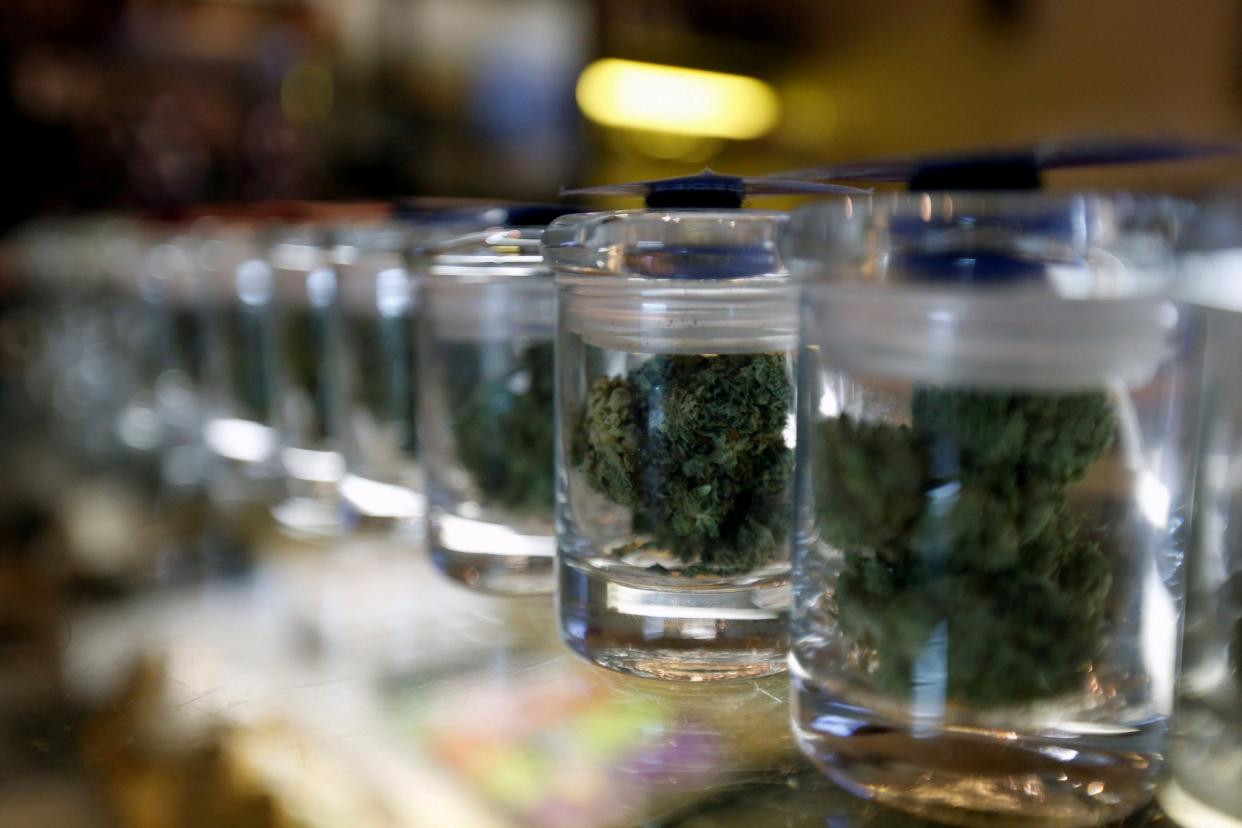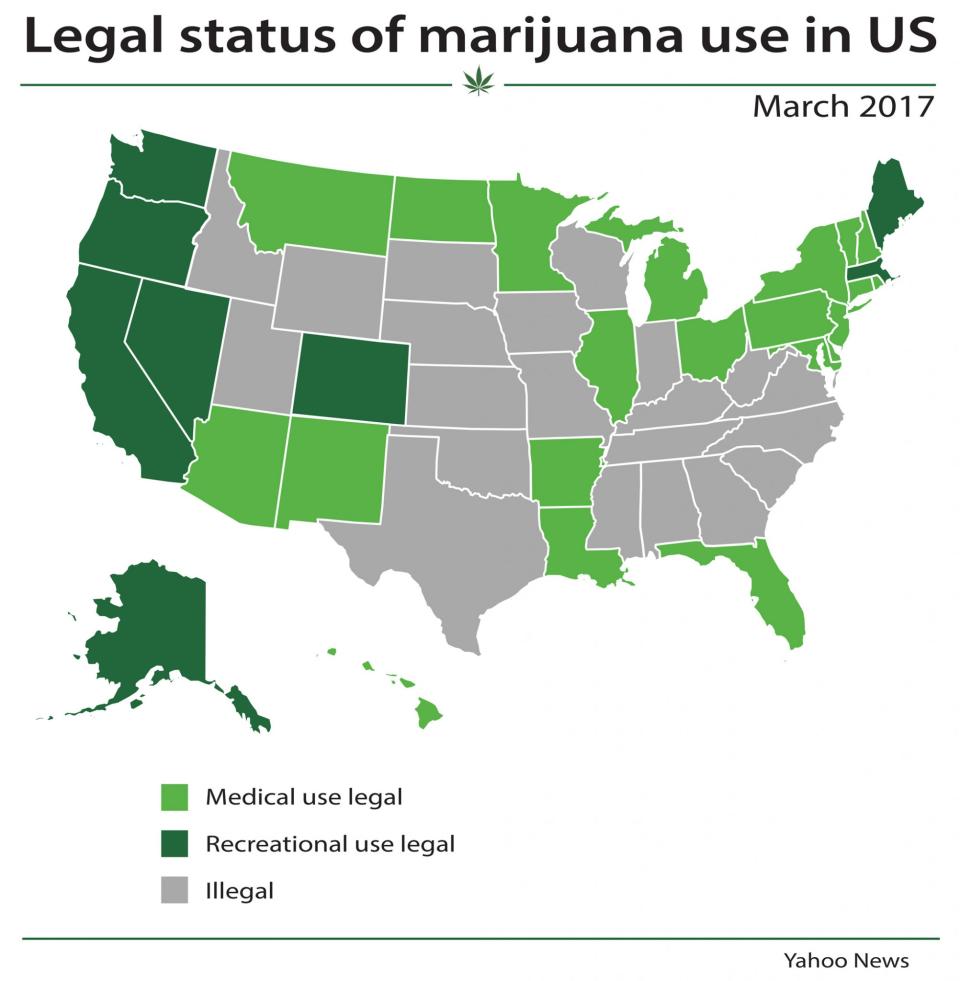Could the marijuana business be the new 'American dream' for Hispanics in the US?

It’s no secret that the legal marijuana industry is a thriving business. Marijuana is a product that has begun to come out of hiding in recent years to decisively enter market dynamics and become the fastest growing business in the United States. The legal sale of cannabis and its associated products had a commercial value of almost 7 billion dollars in 2016 and it is estimated that revenue will come close to reaching 21 billion by 2021.
Another interesting fact according to a report by ArcView Group, an investment and research company for the cannabis industry based out of Oakland, California, is that in a couple of years, the proceeds from the legal sale of marijuana for recreational use will exceed those from medicinal sales.

The new legislative support, such as the Marijuana Businesses Access to Banking Act passed by the Senate in 2015, which allows financial institutions to invest in legitimate marijuana-producing businesses, has greatly contributed to the business environment and is turning it into a highly competitive and increasingly diversified business. In terms of employment, the New Frontier Data research firm estimates that the cannabis market will create about 284,000 new jobs in the United States by 2020.
According to the results of an exclusive Yahoo News and Marist poll, 52% of Americans would support their bank investing in cannabis-related businesses and 28% of respondents say that if marijuana were legal across the country, they would likely invest in the industry.

In states where consumption of marijuana is legal, not only are there dispensaries that sell the herb as such, but there is also a huge number of companies that have emerged, offering new products and associated services. The products and services offered by such companies range from inhalers and vaporizers to all kinds of edible products, infusions, cosmetics, and even exclusive clubs for those interested in consuming extremely high quality marijuana in a social setting or sightseeing tours to visit dispensaries and grow farms.
In the United States, marijuana use has doubled over the past decade and it is expected to rise exponentially in the coming years, especially considering that nearly 60% of the US population lives in states where cannabis use has been legalized in some way. To date, 29 states and Washington, D.C. have laws to control therapeutic use, and of these, eight accept recreational use of marijuana.

Following the new “American Dream”
Within this promising economic panorama, many citizens of Hispanic origin have begun to envision a new business opportunity that could allow them to achieve the longed-for “American Dream” in less time and with lower risk. “It’s practically a guaranteed success,” says the partner of a new cannabis production and distribution firm, whose business is just getting started.
Despite prejudices and reservations about the issue of legalization, there appears to be, in general terms, a much greater tolerance of older Hispanics towards young people’s involvement in the marijuana business. Everyone knows that this could be a great investment in the medium-term and, according to the father of a potential Hispanic investor who prefers to remain anonymous, “As long as it stays within a legal framework, there is no reason to oppose it.”

A few decades ago, accepting that your child or a close family member could sell, produce or distribute cannabis would have been unthinkable, not only because it was a business that was entirely illegal, but also because within the Latino culture, there was (and to a large extent, there still is) a social stigma associating the person who consumes or distributes marijuana with marginality, violence or crime.
California and Florida are two of the states with the largest Hispanic populations. The Hispanic vote in favor of legalizing recreational consumption of marijuana and, to a lesser degree, the need for the existence of medical marijuana, were crucial factors for the approval of its legalization in the last general elections in November 2016.
These prospects have obviously lured in many Hispanics, both those born in the United States and those who arrived later, who are beginning to visualize how this change in mentality could work in their favor for this new venture.
According to a survey by the Pew Research Center in 2010, 35% of Hispanics were in favor of legalizing marijuana, while 61% opposed it. The same survey carried out in 2016 revealed that 46% were in favor and 49% against of legalizing marijuana. In just 5 years, the change of opinion has been drastic and there is a marked tendency in the Latino community towards supporting legalization.
Nevertheless, the approval ratings of cannabis legalization continue to be lower among Hispanics than among the rest of US citizens. Latino immigrants know firsthand the damage that drug cartels have caused in their countries of origin and therefore, marijuana’s association with crime is inevitable.

A large number of people who attribute the heyday of the cannabis industry to the mere capitalist interest of corporations, state governments and lobbyists also have their reservations regarding the legal marijuana industry. They argue that the high acceptance rates are the result of the aggressive cannabis propaganda that has been directly or subliminally spread in recent years across the US to turn it into a multimillion dollar business.
Not all that glitters is “green”
Like in any incipient and prosperous industry, there is a fight to try and get in first and take control. Many visionaries have already opened dialogue with state governments for some time, developing their business plan and strategically positioning themselves within this multi-million dollar industry. And in this race, Latin and African-American entrepreneurs are clearly at a disadvantage.
In most states where the sale of cannabis is already a fact, if a person has any drug-related offense on their record, he or she may have trouble getting into this type of business, whether as an entrepreneur or as an employee. According to a report by the US Department of Justice, more than half of those who were in prison for marijuana-related offenses in 2012 were of Hispanic or Latino origin. That being said, it would not be unreasonable to think that many Hispanics could be marginalized or excluded from the market.
In this context, some wonder whether racial barriers are once again becoming an obstacle for minorities who want to benefit from this new economic upswing and fear that only an exclusive group of white citizens who are leading the way will have the possibility to thrive, maintain control of the marijuana business and take space away from others in this industry.
Although there are no official figures indicating the race of the majority of the new entrepreneurs, several media sources that have been interviewing owners of clinics and legal marijuana stores have revealed that less than 1% of the 3,600 dispensaries currently in existence nationwide are owned by African-American or Hispanic citizens.

It’s only a matter of time
Alejandro Tani, an entrepreneur who has been able to identify cutting-edge business opportunities, and who, in 2014, after a long time spent investing in the financial and technological industry, decided to change his course and shoot for the cannabis business.
After much research and business modeling, he has just founded Innovative Genetics, a company dedicated to the production, distribution, research and technology of marijuana products for both recreational and therapeutic uses. “External consultants have now valued my company at $8 million and estimate that in less than a year, we will be at around 40 million,” he states.

Tani proudly admits that he did not need to search for potential investors, since it was the financiers who had first approached him to offer him money. “Being a new industry, we wanted to keep it under the strictest confidentiality; we do not want to open up our intellectual property to the public in order to prevent other players from copying it.” Even so, they are planning to open their first operations in Los Angeles, Portland, San Juan and Miami with the idea of eventually extending to the remaining states where consumption is already legal.
As an entrepreneur of Hispanic origin, Tani says that his family and friends have responded positively to his business endeavors. Although his line of work remains a prickly issue in his family environment, his relatives have kept a neutral position. “It is only a matter of time before it is fully accepted. As they receive more information, they are opening themselves up more to the possibility.”
Tani is convinced that his business will become an important source of income and revenue and that his family will be proud of his achievement. “My ‘American Dream’ is right on track,” he adds.
A social justice issue
Norton Arbelaez came to the United States from Colombia at the age of 5 and settled with his parents in California. After graduating from university with a law degree, he began working directly with doctors, political groups and legal advisors to develop a regulatory framework for the use of cannabis.
In 2009, he moved to Denver, Colorado, and with the help of medical professionals, he founded a clinic to offer cannabis drug therapy and has since remained in the industry. In March of 2010, he started a new venture and opened RiverRock Cannabis, a grow farm for the cultivation and manufacture of high quality cannabis products in a variety of formats such as creams, vaporizers, drinks and chocolate bars, among others.
Arbelaez is considered a pioneer in the production and sale of legal marijuana. His aspirations in the industry are extremely ambitious and they even cross borders to travel to the Colombian jungle, where he has worked directly with indigenous groups, in particular, within the Nasa community, helping the locals to convert marijuana cultivation into a driving source of regulated economic development.

When asked about what inspires him to continue in the business, Norton says his motivation is not financial, but social. “There are much easier ways to make money. My main motivation is to make it so that cannabis use is no longer a political issue or a racial issue that harms minorities, in order for it to become a support factor for disadvantaged communities instead of an obstacle.”
According to Norton, minorities, particularly Hispanics and African Americans, are the ones who have suffered the consequences of the ban on marijuana. While it is true that all racial groups in the US use cannabis in similar proportions, those who have always “paid the price” are the minorities. “The ban on marijuana is no more than an act of racism that was born in 1937, when it was regulated as a drug in all states and was affirmed by Nixon in the 1970s with his War on Drugs campaign.”
On the subject of cultural prejudices, Norton prefers to think that taboos belong to the last two generations and that today we have overcome much of that stigma. “My family knows that I went into this business very carefully and very seriously. It is not an industry in which you can get any easy start; you need professional training and a lot of knowledge on the subject.”
Whether or not the marijuana business becomes the new American Dream for many Hispanics, two things are clear: that it is a vigorous business, and that any endeavor in this domain will require not only dealing with legal and economic aspects pertaining to it, but also with social and cultural. Nevertheless, the legal consumption and production of marijuana has become a reality and society will have to find a way to adapt to it.

 Yahoo Noticias
Yahoo Noticias 
